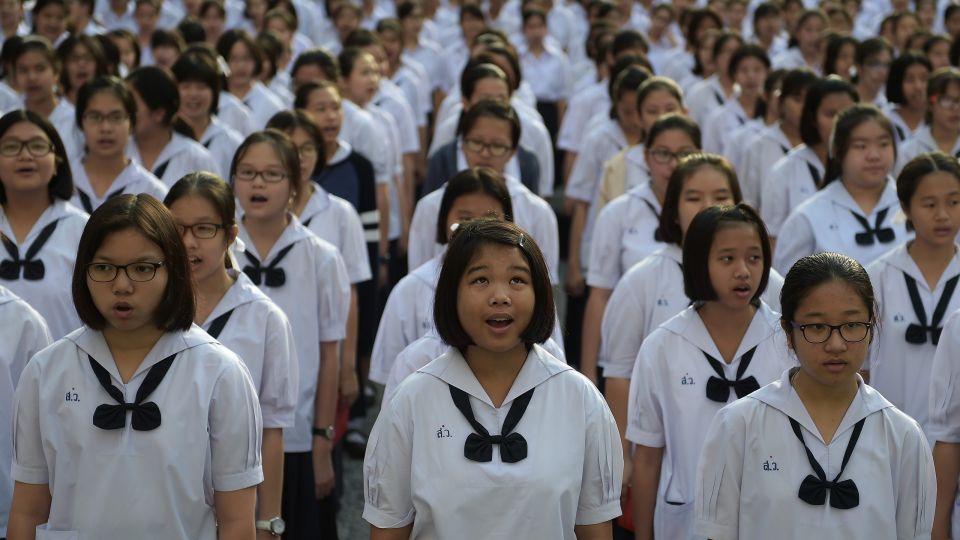February 28, 2020
After being notified of a SARS-CoV-2 infected case at Ajou University Hospital in Gyeonggi Province, South Korea, five minutes walk from her apartment, Phuong Duyen decided to rush back to Vietnam.
“I did not have a plan,” the Vietnamese second-year student of Kyung Hee University told Viet Nam News on Tuesday as she was waiting to board at Incheon International Airport. “I just paid my tuition fee yesterday and had stocked up on food and other supplies online.”
“Everything changed after the patient was reported near my area,” she said.
“My mother urged me to come home as soon as possible. I also read some articles saying the healthcare hotline was overloaded. Considering the current situation in South Korea, I think it is better to come back to Vietnam,” she added.
Duyen immigrated to South Korea on February 3. At the time, the university asked her to fill in a declaration form on her travel history and health status.
“The school was expected to open on March 2. However, it is now rescheduled for March 16 because of the soaring number of COVID-19 cases,” said Duyen.
Chinese students entering the school on Monday and Tuesday have been quarantined at a dormitory in Seoul.
“I received an official email from Kyung Hee University saying we may have to study online for the first two weeks.”
Duyen also plans to spend two weeks in self-isolation after arriving in Hanoi.
On Thursday, South Korea’s coronavirus infection cases were reported to exceed 1,700, putting the country on its highest alert.
According to the International Cooperation Department under Ministry of Education and Training, there are more than 14,000 Vietnamese students at South Korean universities.
But not all of them have decided to leave the country.
“Most of my [Vietnamese] friends here worry about their visas,” Duyen said. “My D-2 visa is only available for single entry. As far as I know, if I request temporary leave, my visa will be cancelled. In that case, I will have to apply for a new visa.”
“However, many people have D-4 visas as they are studying Korean at language institutes. These courses do not allow for a leave or absence,” she said.
Do Quynh Nga, a masters student at the Seoul-based Sogang University, has chosen to stay as the cost of leaving would be more than she can afford.
“I would still have to pay my rent here while I’m in Vietnam,” said Nga. “No one wants to live near the epicentre, but I have the Vietnamese community around me who will help out if things get bad.”
Sogang University has also announced the new school year will start on March 16, but Nga said: “We are not sure if it will be rescheduled.”
According to Nga, the current situation in Seoul is relatively normal.
“There is still a lot of food for sale in supermarkets. Ordering products online is still easy. However, facemasks are in short supply. The KF94 facemask costs about 2,000won (US$1.64), which is quite high for overseas students like us,” said Nga.
“It is not because of poor communication. On buses and subways, there have been a lot of instructions on disease prevention even before the “super-spreader” patient was reported last Monday.”
“I think people became lax when it was announced other countries had the virus under control,” added Nga.
Nguyen Thi Kim Ngan, a masters student at Torch Trinity Graduate University, has been under quarantine since February 21 after her arrival in Seoul.
“All international students are being asked to self-isolate for 14 days, but we’re provided three meals per day,” said Ngan. “We can go out and get some fresh air on campus but it is not recommended.”
According to Ngan, being under quarantine felt surprisingly safe since the number of cases had rocketed in just few days.
25-year-old Nguyen Huyen Phuong is considering starting her masters course at Woosong University in South Korea’s technology hub Daejon City this autumn instead of spring.
Of all three first patients to test positive for coronavirus in Daejon City, there was a woman who used to visit Woosong University.
“Since Daejon is located between Seoul and Daegu, I am worried that the situation could get worse,” said Phuong.
“My university has pulled out all the stops to prevent the disease spreading, including sterilising the whole campus and isolating students returning from China and anyone who shows symptoms of fever, shortness of breath or a cough,” she added.
“The university’s regional manager, who is Vietnamese, has instructed me to submit a request in case I want to postpone my studies.”
Although Phuong said she felt relieved to be back in Vietnam, she expected South Korea to bring the situation under control for her to start pursuing her degree.
In case of emergency, Vietnamese nationals can contact the Vietnam Embassy in South Korea on +82 106 315 6618 or the citizen protection switchboard on +84 981 848 484.


